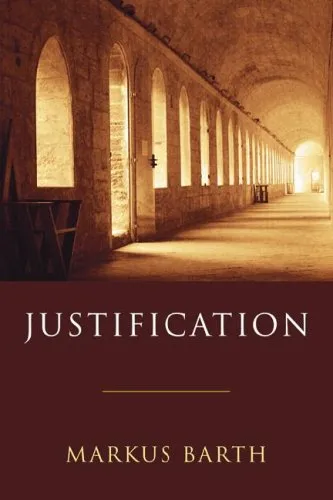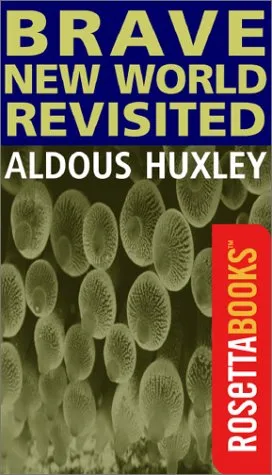Justification: Pauline Texts Interpreted in the Light of the Old and New Testaments
4.3
Reviews from our users

You Can Ask your questions from this book's AI after Login
Each download or ask from book AI costs 2 points. To earn more free points, please visit the Points Guide Page and complete some valuable actions.Related Refrences:
Introduction to 'Justification: Pauline Texts Interpreted in the Light of the Old and New Testaments'
Markus Barth’s 'Justification: Pauline Texts Interpreted in the Light of the Old and New Testaments' is a comprehensive exploration of the concept of justification through a thorough examination of Pauline texts. This scholarly work places a strong emphasis on the theological continuity and development throughout the biblical canon, offering an ecumenical perspective that bridges traditional and contemporary interpretations. With a meticulous scholarly approach, Barth ventures into a critical analysis while maintaining accessibility to a wider audience.
Detailed Summary of the Book
In 'Justification: Pauline Texts Interpreted in the Light of the Old and New Testaments', Markus Barth embarks on an insightful journey to unravel the theological complexities of justification, as expounded by the Apostle Paul. Barth's approach is deeply rooted in examining how Pauline theology interacts and integrates with both the Old Testament and the New Testament, providing a coherent narrative that spans the entirety of biblical scripture.
The book delves into how Paul communicates the notion of justification, not as a solitary theme but as a cornerstone of Christian theology that resonates with the covenantal promises found in the Old Testament. Barth examines key epistles, notably Romans and Galatians, and brings forth an interpretative framework that illuminates Paul's theological intentions by juxtaposing them with Old Testament texts. By doing so, the book offers insights into the continuity and development of the doctrine of justification.
Barth’s work is not limited to a mere academic exercise; it is a theological reflection that speaks to modern ecclesiastical contexts. This approach aids in understanding the relevance of Paul's teachings on justification to contemporary faith communities and theological discourse, allowing readers to appreciate the richness of apostolic thought.
Key Takeaways
The following are key takeaways from the book:
- The Interconnectedness of Scripture: Barth highlights how understanding Paul necessitates a firm grasp of both the Old and New Testament, showing a seamless theological development across the Bible.
- Recontextualization of Justification: Far from being a stale dogmatic principle, justification is presented as dynamic and vital, with implications for how believers perceive divine grace and justice.
- Ecumenical Approach: Barth adopts an inclusive stance, encouraging dialogue among differing Christian traditions and widening the interpretive breadth of justification.
- Practical Implications for Faith: The book does not shy away from addressing how Pauline theology can inform and transform contemporary Christian practice and ethical living.
Famous Quotes from the Book
“In dissecting the notion of justification, one must do more than glance at isolated Pauline verses; it requires entering into the narrative of Israel's history and grasping the profundity of the Gospel's proclamation.”
“The epistle to the Galatians is not a manifesto of individual religiosity but rather a tapestry woven from the threads of ancient covenantal promises and the new fabric of Christ’s faithfulness.”
Why This Book Matters
Markus Barth's book holds significant importance for both theological scholarship and the everyday believer. His deep engagement with scripture provides a richer understanding of Paul’s teachings, pushing past conventional interpretations of justification to reveal their broader, transformative power. This work serves not only as an academic achievement but also as a bridge for ecumenical dialogue, promoting unity and cooperation across Christian denominations by offering a common ground in the shared narrative of justification.
Moreover, Barth’s passion for integrating biblical theology into practical living challenges readers to rethink how the principles of justification influence their daily lives, interactions, and ethical considerations. His commitment to clarity ensures that the complex theological discourse remains accessible, making it an essential read for anyone interested in a deeper understanding of Pauline theology and its implications for contemporary faith.
Free Direct Download
You Can Download this book after Login
Accessing books through legal platforms and public libraries not only supports the rights of authors and publishers but also contributes to the sustainability of reading culture. Before downloading, please take a moment to consider these options.
Find this book on other platforms:
WorldCat helps you find books in libraries worldwide.
See ratings, reviews, and discussions on Goodreads.
Find and buy rare or used books on AbeBooks.
1337
بازدید4.3
امتیاز50
نظر98%
رضایتReviews:
4.3
Based on 0 users review
"کیفیت چاپ عالی بود، خیلی راضیام"





